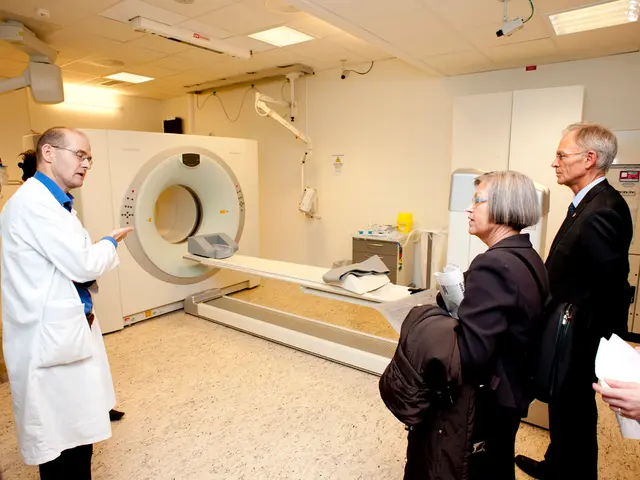The Crucial Importance of Basic Mathematics in Artificial Intelligence and Daily Routines
=====================================================================================
In an era dominated by Artificial Intelligence (AI) and automation, understanding the fundamentals of mathematics has become more important than ever. Encouraging a growth mindset around math and emphasizing its relevance in today's world can help people overcome fear and frustration with the subject.
At the heart of advanced systems like AI, complex mathematical models are built upon basic arithmetic operations repeated millions of times. The operations at the core of AI technologies, such as neural networks, are simple mathematical operations like addition and multiplication. This underscores the critical role of foundational math in shaping major advancements in technology.
Mathematicians inherently excel at first principles thinking due to their training in foundational math. The concept of first principles thinking, often employed in industries like AI, automation, and data science, is rooted in the ability to break down complex ideas into their most basic elements. Calculus, despite its reputation for complexity, builds on core arithmetic skills and teaches concepts vital for technology, engineering, and the sciences.
Proficiency in foundational math is both practical and powerful. It equips people with skills to tackle a wide range of problems, from financial analysis to personal data management, which is crucial in today's digital age. Mastering seemingly simple tasks with precision, such as managing resources or calculating time or cost estimates, can contribute significantly to a project's success. Basic math is a great equalizer in both personal and professional life, as it underlies various actions such as helping robots navigate, optimizing cloud storage, or managing budgets.
In terms of real-life implications, understanding the mathematical principles behind AI helps individuals make informed decisions about technology adoption and AI integration in their personal and professional lives. Mathematics enhances critical thinking skills, enabling individuals to better analyze complex data and algorithms that increasingly influence modern life. Problem-solving skills, honed through mastery of foundational math, are crucial in today's digital age.
Professionally, having a strong foundation in mathematics is essential for careers in AI and data science. It underpins algorithms and data analysis techniques. In industries where AI is transforming business models, understanding mathematical concepts such as linear algebra, calculus, and probability gives professionals a competitive edge. For business leaders, understanding the mathematical underpinnings of AI helps in formulating strategic decisions about AI adoption and investment.
The broader societal impact of understanding foundational mathematics includes education reform, public awareness, and ethical considerations. Recognizing the role of mathematics in AI has led to reforms in math education, such as introducing subjects like AI mathematics to prepare students for a future where AI dominates. As AI becomes more pervasive, mathematical literacy helps create a more informed public, capable of understanding and engaging with AI-driven technologies. Understanding the math behind AI can also inform discussions around ethical AI use, ensuring that technology is developed and used responsibly.
In conclusion, understanding foundational mathematics, especially in the context of Artificial Intelligence (AI) and modern life, has significant real-life and professional implications. From informed decision-making to career opportunities, the role of mathematics in AI cannot be overstated. Embracing a growth mindset around math can open up possibilities in problem-solving, technological innovation, and everyday life.
- A solutions architect, focusing on education and self-development, might find it beneficial to maintain a blog centered around the relevance of foundational math in today's technology-driven world, emphasizing its impact on AI, data science, and automation.
- Traveling to various project sites as a solutions architect, one may encounter opportunities to apply foundational math skills not only in complex technology integrations but also in everyday tasks related to the optimization of travel itineraries and budgeting.
- In the digital age, a comprehensive education-and-self-development plan should prioritize the mastery of foundational math, as its principles form the backbone of science, technology, and many AI solutions, enabling individuals to excel in their respective careers and contribute to advancements in various industries.




